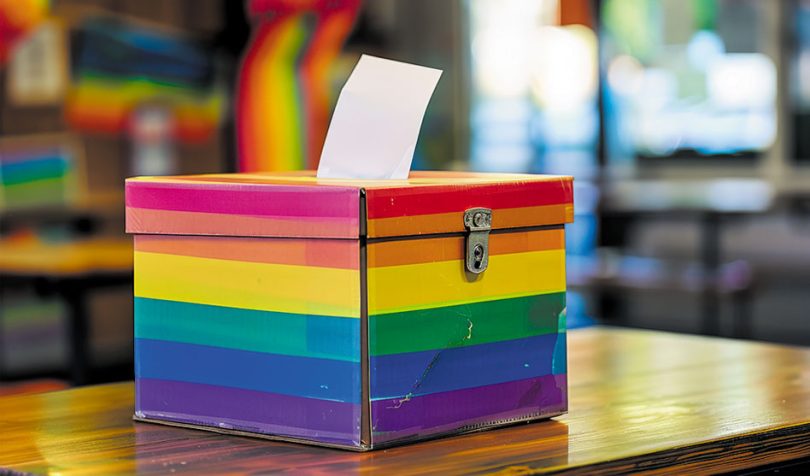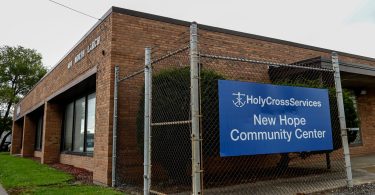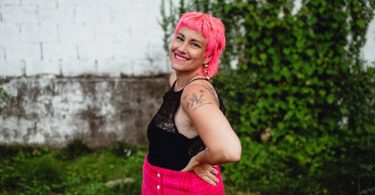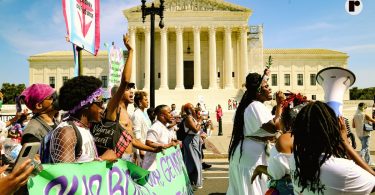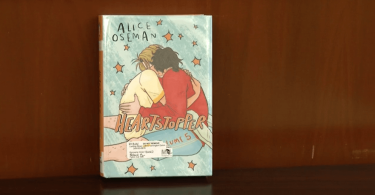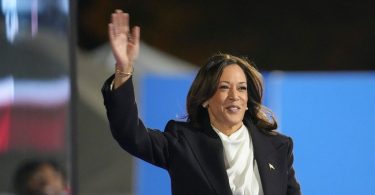Voting expert David Grasso discusses how the LGBTQ community votes and the impact it makes
DAVID TAFFET | Senior Staff Writer[email protected]
The gay community is diversifying politically,” according to journalist, television commentator and media entrepreneur David Grasso. “As we get older, we take voting more seriously than younger people,” he added, suggesting that older people will vote despite the obstacles, whereas when a younger person hits one of those obstacles, they’re more likely to just not bother.
Grasso said a number of things were done in 2020 to make voting easier and that translated into more votes. For example, in Dallas and some of the surrounding counties, rules were changed to allow registered voters to cast their ballot in any precinct. Some other states allow individuals to register to vote online or to print out an application for a mail-in ballot. That means more voters casting their ballots.
David Grasso
On the other hand, straight-party voting was eliminated, making the process of voting take longer for those who weren’t splitting their ticket.
“The power of politics is local,” Grasso said, saying local politics are the minor leagues that are building for the big leagues. And the LGBTQ community is participating in that successfully.
Locally, Julie Johnson gained experience by serving three terms in the Texas Legislature. This year, in the Democratic Primary to replace Colin Allred in Congress, she accomplished the rare feat of defeating 10 opponents without a run-off.
She’s expected to win the general election in what is a heavily Democratic district. And she is running a smart get-out-the-vote campaign to assure victory.
Grasso, who lives in Florida, said his state is not a swing state right now. But, like Texas, Florida’s progressive communities are building upwards from the local level. And that’s made a difference.
“There’s been a huge transformation,” Grasso said. “Sodomy was illegal when I was in college,” but today same-sex couples can marry.
In elections, especially in swing states, the LGBTQ community can make a difference. In Arizona, for example, Joe Biden won in 2020 with just a 10,000-vote margin. There are an estimated 300,000 LGBTQ residents in Arizona, and even with an estimated 15 percent of the community backing former President Donald Trump, the LGBTQ vote could make the difference in that state this year.
Nevada, Wisconsin and a handful of other states may be decided by similar margins, he said.
But should we assume the LGBTQ community will be voting for Democratic candidates?
“A lot of gay people are entrepreneurs — DINKS,” Grasso said. “They care about taxes.” A large portion of the community remains independent, giving the GOP “a big opportunity to make inroads.”
How? It’s simple, he said: Concentrate on issues that really matter. Stop attacking the transgender community; stay out of our bedrooms, and focus on the economy.
For several reasons, the LGBTQ demographic skews younger. For legal, family and religious reasons, it was harder to come out decades ago. Also, AIDS decimated what’s now the older generation of gay men.
And “because we are a youthful voting block,” Grasso said, “we feel the system isn’t built for us.”
Younger LGBTQ voters care about healthcare, education and housing — all things that have become harder for younger people to afford. And recent inflation, while it was a result of digging out of the pandemic that began during the Trump administration, happened during the Biden administration.
That could turn some of those voters away from the Democratic Party.
Over the last decade, Texas has been growing much faster than California, Grasso said that’s because of our state’s conservative policies, which has kept the cost of living down.
For all those reasons, he said, the LGBTQ vote is not a monolith. And it is still up for grabs.
“The Harris campaign has mentioned down payment assistance” for buying a home, and that should play with with LGBTQ voters he said. And prioritizing finding a solution to student debt is important to the LGBTQ community.
“Both parties need to understand the power of our vote and outreach to our community if they want to win,” Grasso said.
“And don’t underestimate our allies. Once you feel like you’re a part of the community, you care about us.”
Big tent politics win, and inclusivity is the best type of campaigning.
PROJECT AMICUS
Grasso has created Project Amicus as a way for the LGBTQ community to influence politics abroad. Sodomy is still illegal in 64 to 67 countries, he explained. The U.S. Can be a beacon of hope for people in countries where their very existence is criminalized.
“American leadership has so much power to change the world,” he said.
In round numbers, he estimated 1 billion people have marriage equality, 2 billion people are criminalized for who they are and 3 billion live somewhere in between.
“U.S. policies can make the difference abroad,” he said.
In Jamaica, sodomy is illegal. As much of the LGBTQ population from the island that has been able to leave have left and are now living in Canada and the U.K.
“Their economy revolves around tourism,” Grasso said. “I don’t recommend traveling there.”
During the pandemic, a number of countries, especially in the Caribbean, decriminalized sodomy — including Antigua and Barbuda, St. Kitts and Nevis, Barbados, Trinidad and Tobago and Belize. And Guyana is working on it, Grasso said.
In other parts of the world, India, Namibia, Mauritius, Bhutan and Botswana have moved toward equality.
Ukraine is more pro-LGBTQ than it was before because they see it as more of an American value than a Russian one. LGBTQ soldiers have fought for their country, and Ukraine is working to join NATO.
“Foreign policies translate into wins abroad,” Grasso said.
On his website ProjectAmicus.org, Grasso explains, “The American LGBTQ+ community has a responsibility to promote equality worldwide, given our remarkable political and purchasing power.”

